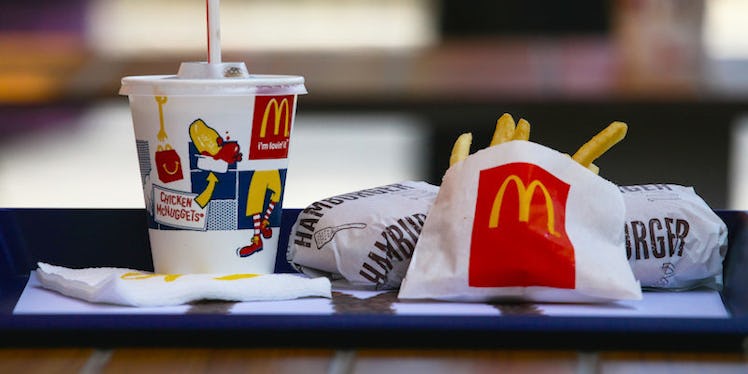
How Grease-Resistant Food Wrappers Could Unknowingly Damage Your Health
I was recently bombarded with daunting articles warning me that my pizza box or bag of microwaved popcorn might cause serious harm. The part of the packaging that keeps grease from seeping through, enveloping your delicious, cheesy pizza could actually be full of chemicals with cancer-causing properties.
This was a bit of a wake-up call. How long has this been going on? What else don't we know? I wanted to know more.
Does my favorite chain use these terrible chemicals? What about the one my boyfriend orders from during his weekly late-night work sessions? Is this happening everywhere? I don't want either of us dying because we were too lazy to cook dinner or a craving for fries struck.
I put on my investigator hat and looked for more concrete answers. Tom Neltner, chemicals policy director at the Environmental Defense Fund, leads the effort to remove or reduce these hazardous chemicals from products and the marketplace through policy initiatives. When I spoke with him about these paper wrappers loaded with chemicals, he both terrified and reassured me.
Referring to the chemicals, Neltner said,
Anywhere you have fatty foods or greasy foods, paper usually has them. It's not just pizza boxes and McDonald's sandwich wrappers. It has pretty widespread use, and what happens is they accumulate in our bodies and don't go away very quickly. It's a long time, and when they're in our body, they can cause problems, especially if you're a pregnant woman or a child. In pregnant women, it can cause reproductive and developmental problems.
OK, so now I'm scared to buy anything that touches paper. There goes the cookie at the bakery, where they grab it with some tissue-thin paper. There goes the slice of cheesecake, separated with a square of paper. There goes the french fries, sitting in a cardboard cup.
When asked if I would have come in contact with these chemicals if I ordered a pizza recently (thinking to the Papa John's box sitting in my recycling bin), Neltner was a bit more reassuring.
We hope they are not in food, so they shouldn't be there. The US industry has assured us it has banned them. The problem is that when the US companies (primarily DuPont and now Chemours) have shut down, companies overseas (primarily India and China) apparently started up production and are making them now.
Neltner also mentioned issues with flavoring. There are chemicals used in foods to create certain flavors. Does it come as a surprise that some mysterious assemblage of consonants and vowels create a toxic flavor in your food? Are you hearing the phantom sounds of your mom warning you against Yellow No. 5?
This issue is just another point for the pro list that tells us to stick with unprocessed, organic food. The closer we get to a carrot from a safely-soiled garden, the closer we get to being healthy.
Neltner has five easily accomplishable tips that will have you eating a chemical-free meal:
1. Go get your produce at the farmer's market.
They usually sell milk, eggs, meat and honey, too.
2. Spend more time making your own food.
You'll be smarter and safer when you know every ingredient in your dinner.
3. Don't consume products you cannot pronounce.
Unless it's quinoa or acai. You'll figure it out eventually.
4. Beware of “healthy” foods with "lite," "low-fat" and "sugar-free" labels.
Sometimes, when an ingredient is taken out of a product, something worse is added.
5. Remember to give yourself a break.
A lifestyle change takes time if you want it to stick, so don't be afraid to be better one day at a time.
These chemicals were used up until 2010, and they stay in our bodies for a long period of time. So, it's good that the FDA is finally banning them, but it still makes me question (and it should make you question, too) all the things I consume.